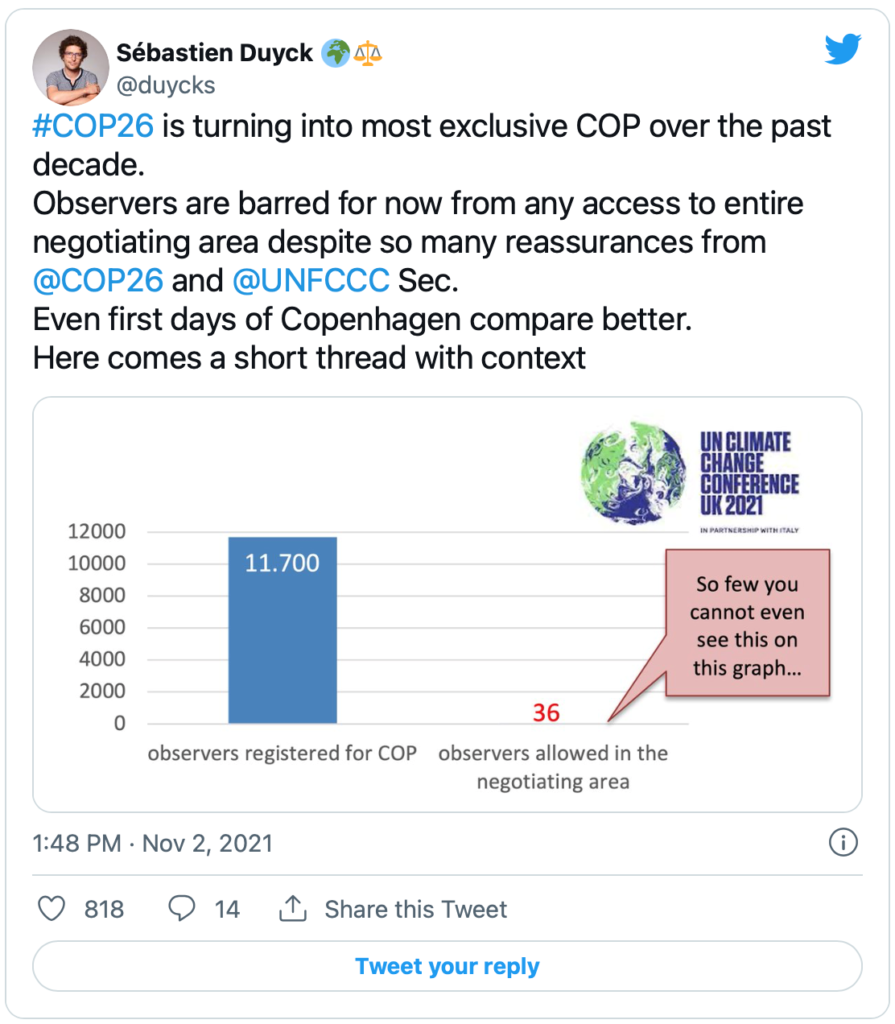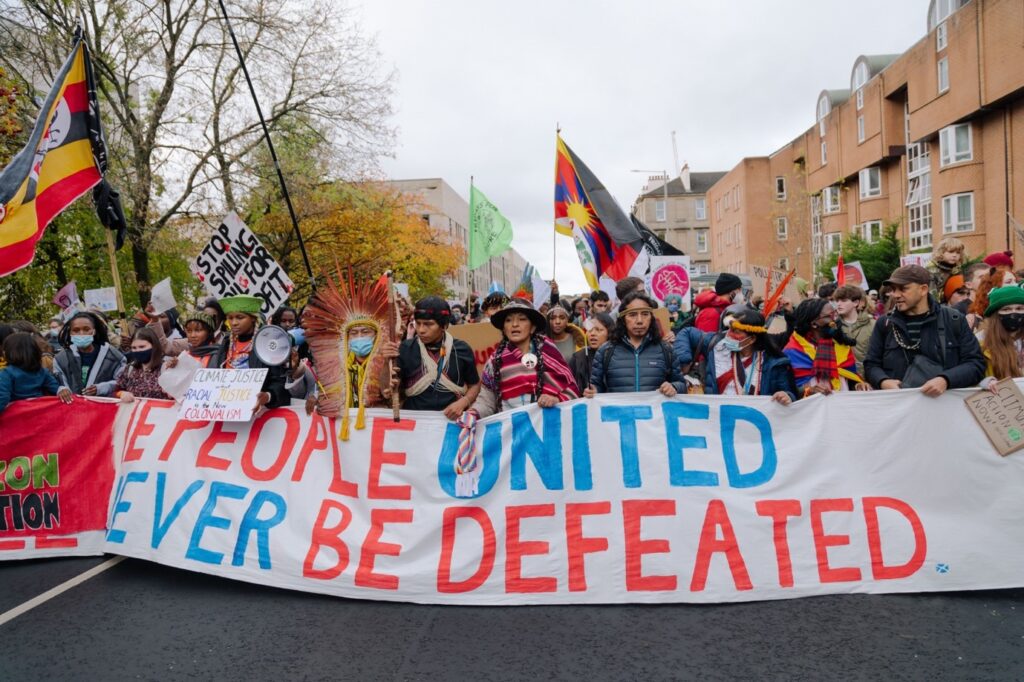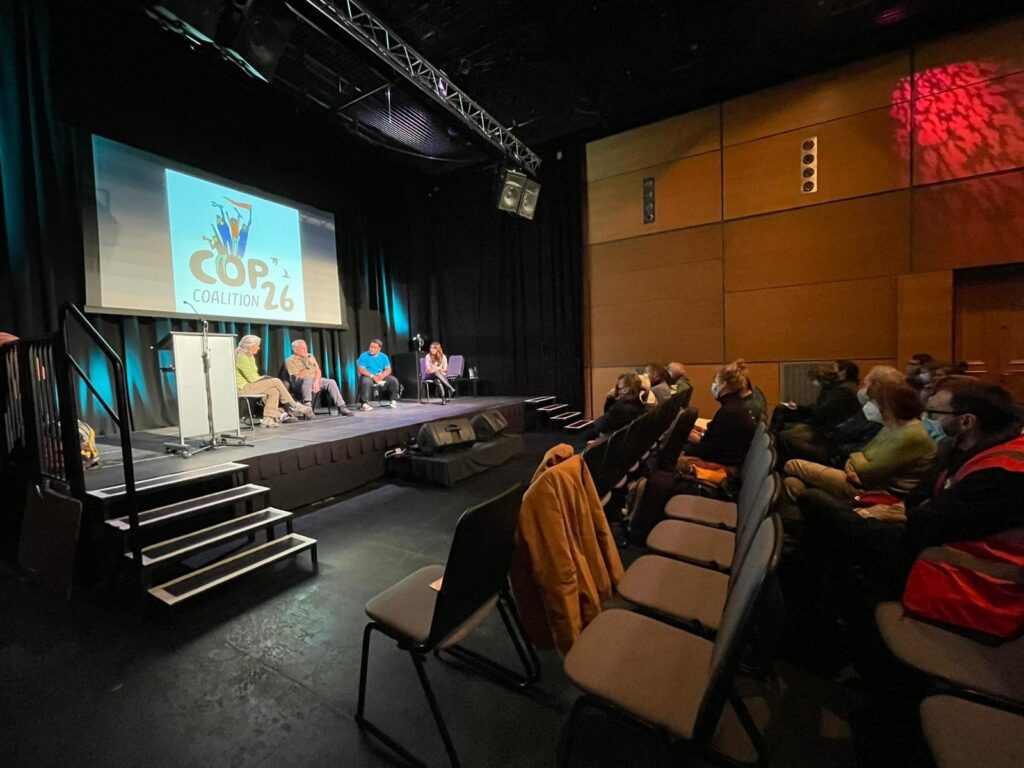It has been more than two weeks since the end of the 26th United Nations Climate Change Conference (COP26) in Glasgow, Scotland, United Kingdom. Whilst some participants are already back home and working, others, such as civil society representatives from the South Pacific, are still in quarantine. Covid restrictions have hampered global lives for almost two years. The pandemic has posed not just challenges to the travel plans of individuals from countries most vulnerable to the impacts of the climate crisis, but has also served as a disguise to justify the shrinking of civic space.
To many who travelled to Glasgow, COP26 was their first experience of the Conference of the Parties (COP) to the 1992 United Nations Framework Convention on Climate Change (UNFCCC). Compared to seasoned COP-goers, first-timers, with the exclusion of trained diplomats, are significantly under-prepared for the monstrosity of the event and complexity of the technical jargon.
Firstly, COP is not for the faint-hearted. This is because of the amount of preparation required pre-, during, and post-COP. One needs to be adequately prepared by reading widely about the procedures to get to, be, and leave from there, including familiarity with dedicated apps and websites; be physically fit to walk the distances needed to move from one point to another within the COP compound; and have the mental fortitude to juggle many unexpected turns. Throw a pandemic into the mix and these three things become inevitably more challenging. In fact, they were such major issues that the UNFCCC Secretariat sent an official apology on the fourth day of the conference “for the inconveniences associated with accessing the venue of COP26, both physically and virtually”. It did not offer any concrete solutions except to assure participants that it was doing its “utmost to continuously learn and adapt”.
Due to Covid restrictions, COP26 can be touted as the whitest COP ever; the United Kingdom is clearly more accessible and/or affordable to Europeans without huge hurdles for obtaining visas, meeting vaccination requirements, or the obligation to quarantine. One may understand the need for heightened security during the World Leaders Summit, which takes up the first two days of the COP, where heads of state and government come to deliver their statements. But when security gets in the way of scheduled parallel negotiations and other events, one has every right to criticise the failure to balance needs. In effect, much of the accessibility issue prevented key individuals from attending their meetings and compounded questions of segregation.

Figure 2: One of the many tweets about how exclusionary COP26 was. (Credit: Sebastien Duyck, Twitter @duycks)
Secondly, COP has become more complex because of the sheer amount of technical jargon one needs to be familiar with, especially if one’s native tongue isn’t English. Consider these abbreviations: NDC, CMA(3), CMP(16), SBSTA, SBI, CVF, BINGO, RINGO, TUNGO, ENGO, WIM, AOSIS, LEG, LMDC. And these terms: carbon market, constituents, emissions trading, non-paper, net zero, commitments, “welcoming”, “urging”, low-emission energy systems, unabated, inefficient, double-counting, overall mitigation, phase-out, phase down. What about the following names? Santiago Network, Loss & Damage, Executive Secretary, Standing Committee on Finance, Supervisory Body? Without laser focus on one’s purpose at COP, these terms may overwhelm you, leading to missed opportunities or even misinformation.
In COP’s defence, the growing lexicon is attributable to the broadening participation of stakeholders and deepening understanding of science and technology; after all, it has been 27 years (+1 year if the postponement of 2020 is included) since the first COP in Berlin in 1995. Yet, starkly under-emphasised, if not, undermined, in COP lexicon are three words: justice, liability, and accountability. One prime example of how this plays out contextually year after year is the contradiction between states’ use of words such as “urgent” and “ambition”, and the ability of any state to filibuster progress. It is no wonder that Greta Thunberg’s famously coined term, “bla, bla, bla”, resonates so much with people. It is no surprise that for over two weeks, the streets of Glasgow were filled with people protesting, with many demanding climate justice.

Figure 3: Protesters on the streets of Glasgow, Scotland. (Credit: Marie Jacquemin, Instagram @mariejacquemn)
Fortunately, there are still good people in the Blue Zone – where the official negotiations at the COP take place. In contrast to states that have the luxury of time and resources, a few small island developing states (SIDS) strongly held their heads above water (pardon the eerie pun) in a tradition that harks all the way back to the 1990s, when the UNFCCC was negotiated. Whilst some island states focused on solidifying initiatives from the past (e.g. the annual pledge of $100 billion dollars in climate funding, operationalising the Santiago Network), a few, like Vanuatu, Tuvalu, and Antigua and Barbuda, sought other avenues to fill the gap of missing climate justice. A few months prior to the opening of the COP, Vanuatu, a Pacific small island state, announced its intention to initiate a request for an advisory opinion from the UN’s principal judicial organ, the International Court of Justice.[1] This initiative is championed by youths, primarily from the South Pacific, who call themselves World Youth for Climate Justice.[2] Similarly, Tuvalu, the fourth smallest country in the world, and Antigua and Barbuda signed an agreement on Day 1 of COP26 to establish a commission authorised to request advisory opinions from the International Tribunal for the Law of the Sea on, amongst others, the legal responsibilities of states for carbon emissions.[3] These two legal initiatives will help link climate justice to politically-sensitive issues such as human rights, the polluter pays principle, the do no harm principle, but ultimately responsibility, accountability, and reparation. One can only applaud the leadership demonstrated by these small island states.

Figure 4: A side event by the World Youth for Climate Justice on their campaign to bring climate justice to the International Court of Justice in the Blue Zone at the Benelux Pavilion. (Credit: Shirleen Chin)
Outside the Blue Zone is the Green Zone, where the public, who are not accredited for the rarefied Blue Zone, have access. Here there are more “climate fringe” events held by a myriad of actors, such as civil society, media outlets, companies, indigenous groups, interfaith communities, and youths. One could say that these fringe events collectively embody the missing political will of the COP. This is because, more so than in the Blue Zone, real action happens here: voices are raised, partnerships are forged, solutions are proposed, and support is found.

Figure 5: A fringe event showcasing an independent film called Immuto by Island Reach outside the Blue Zone and accessible to the general public (Credit: Shirleen Chin)
Notwithstanding the criticism, COP represents not only the best and the worst, but also the mediocre. Fuelled (no pun intended) by post-COP vigour, all attendees can agree to go home with plans in their minds that will either simmer for a while, be ready-to-serve, or be potentially overcooked or stale. Already those who are committed to their organisations, campaigns, or initiatives have laid out follow-up and complementary events.
Complementary to the judicial avenues sought by the small island states is another avenue related to the campaign to make ecocide a fifth atrocity crime at the International Criminal Court (ICC). This campaign was initiated by Polly Higgins, a UK barrister who died in 2019, and subsequently managed by a team composed of those who worked closely with her in the past. Through the campaign’s non-profit entity, Stop Ecocide Foundation, an independent expert panel for the legal definition of ecocide was launched to explore a workable definition for an eventual proposal to amend the Rome Statute, the governing document of the ICC. The panel’s proposed definition was announced in June 2021. Prior to this, in December 2019, two small island states, Vanuatu and the Maldives, took bold political steps, urging the Assembly of States Parties (ASP) to the Rome Statute to consider ecocide an international crime, which would warrant an amendment to the treaty. The court currently has jurisdiction over four atrocity crimes: genocide, crimes against humanity, war crimes, and crime of aggression. Numerous countries have since expressed an interest to address ecocide at the international level. It is with anticipation that Vanuatu will again be co-hosting a side event at the upcoming ASP to discuss the consideration of the new legal definition of ecocide.[4]
COP26 fell short of delivering climate justice, much less addressing its urgency and action. Instead, it lived up to the reputation of COPs as talking shops, with the virtual exclusion of those most vulnerable to the impacts of climate change, but the expected use of weak language on action. Rather than relying on COPs to address the environmental and climate crisis, those interested in real change are turning to legal avenues to create justice, liability, and accountability – and rightfully so.
Shirleen Chin is an international legal expert who focuses on matters related to the environment, climate, international (criminal) law, human rights, anti-corruption, and organised crime. Through her consultancy, Green Transparency, she uses her skills in strategic advocacy to help NGOs and their initiatives or campaigns. One of these campaigns is the international movement to make ecocide an international crime by Stop Ecocide International Ltd (UK) and Stop Ecocide Foundation (NL).
[1] https://www.theguardian.com/world/2021/sep/26/vanuatu-to-seek-international-court-opinion-on-climate-change-rights
[3] https://www.sprep.org/news/tuvalu-is-sinking-prime-minister-natano-tells-world-leaders-grim-reality-of-atoll-nation
[4] https://www.stopecocide.earth/events/ecocide-a-fifth-crime-defined







